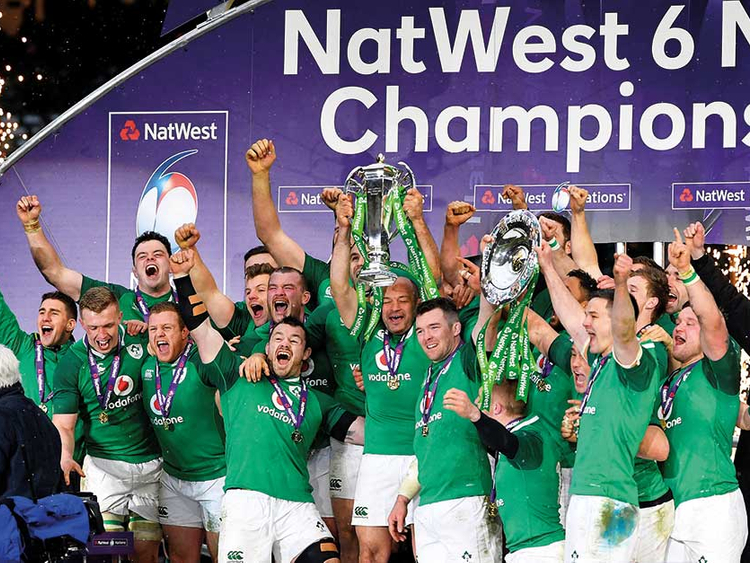London: Ireland winger Jacob Stockdale set a Six Nations record on Saturday when he touched down his seventh try of the championship in his team’s grand-slam clinching 24-15 victory over England at Twickenham.
The 21-year-old benefited from a TMO ruling that he hand knocked the ball forward with his knee rather than his hand as he chased and dived on the ball for Ireland’s key third try just before halftime.
His tally of seven took him ahead of England duo Will Greenwood and Chris Ashton and Welshman Shane Williams and took his overall international tally to a remarkable 11 in nine games.
Stockdale had already become the first man for more than 100 years to score multiple tries in three consecutive matches after doubles against Italy, Wales and Scotland.
However, he fell one short of the all-time championship record of eight, set by England’s Cyril Lowe in the then-Five Nations of 1914, and matched by Ian Smith in 1925, when the Scot twice scored four in a match.
“Jacob is still a kid,” Ireland coach Joe Schmidt said. “He’s done incredibly well and people take it for granted but he hasn’t had that much rugby at this level or even at provincial level.”
Taking the positives from defeat is the standard post-match mantra of the modern sporting coach but Eddie Jones was surely stretching credulity when he vowed that England would be better for their worst Six Nations performance in 35 years.
Victories for Scotland and Wales meant that England finished outright fifth in the standings, their worst performance since 1983. It was their first home defeat under Jones, their first in the Six Nations at Twickenham since 2012 and the first time they have lost three in a row in the championship for 12 years.
“In these three games we’ve learnt about ourselves, about the team, about how we go about our game, and it’s part of the process of being a better team,” Jones told reporters.
“You guys only see the external. When you take over a team like England there are things you can fix quickly but internal mechanisms, such as developing leaders, are slow burners, so for us it’s been an enormously beneficial, if disappointing, tournament.
“I think we are moving forward and I know that’s hard to see.” It certainly was for most of the 82,000 at Twickenham, who have got used to victories under Jones as he won 24 of his first 25 games in charge.
The ledger now reads 24 from 28 and things are not about to get any easier. England’s next five games are a three-match series in South Africa in June followed by Twickenham dates with the Springboks and New Zealand.
Jones said, however, that he had never been content with his extended honeymoon period.
“Even with 23 wins we knew we weren’t good enough and had to change some things,” he said.
“Unfortunately it’s something you have to have, you never find out about yourself until ... every team I’ve had have had a run like this — it’s instrumental to the development of a team.
“Some have come in and done well while others are going to struggle to participate in the future.” England were always chasing the game on Saturday after early tries for Garry Ringrose and CJ Stander and though they hit back through Elliot Daly, they never really recovered from conceding a third try in first-half stoppage time to Jacob Stockdale.
Daly’s second and a late score for Jonny May merely reduced the deficit but Jones maintained his team are not far away from where he wants them.
“There’s nothing that stands out that we massively need to fix,” he said.
“We need more leadership on the field, we’ve had a slight fix at the breakdown — though Ireland didn’t really contest there as much as in the last two games so I’m not sure if we’ve fixed that.









